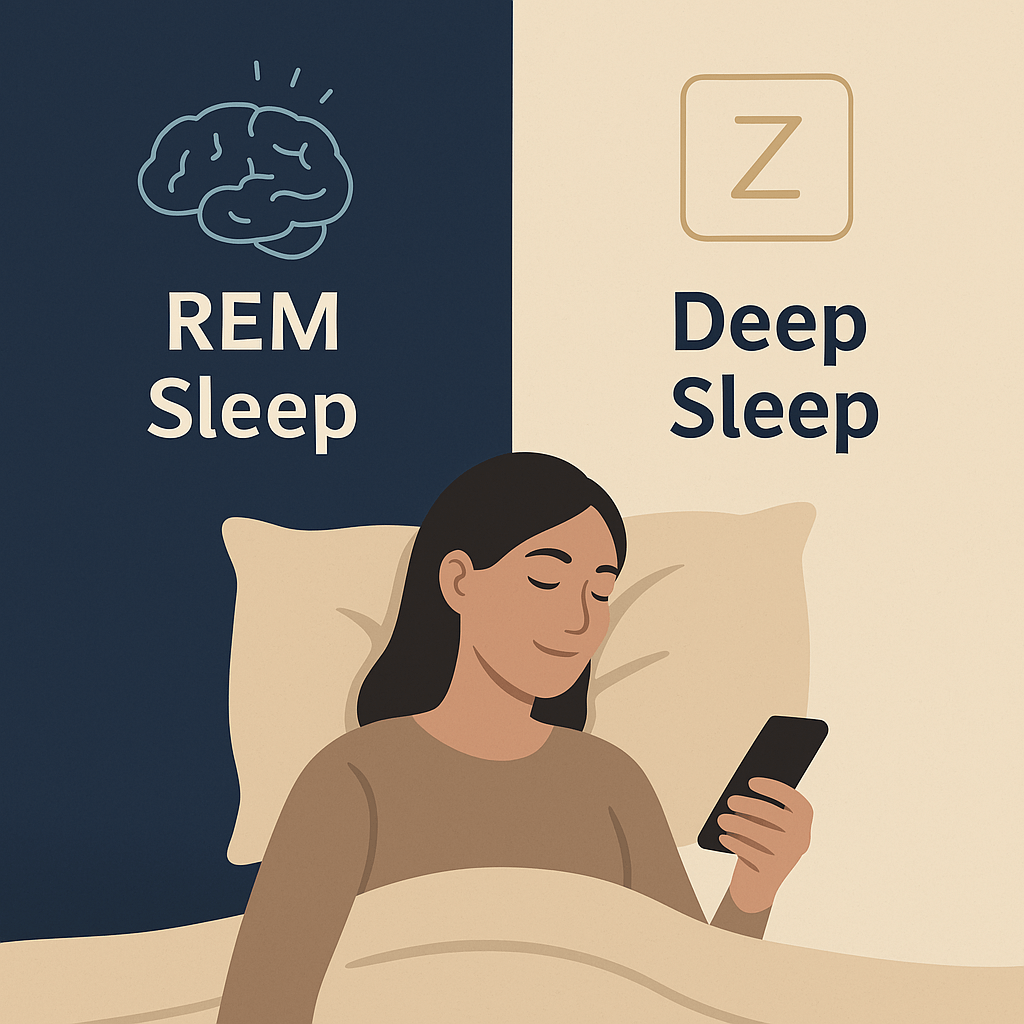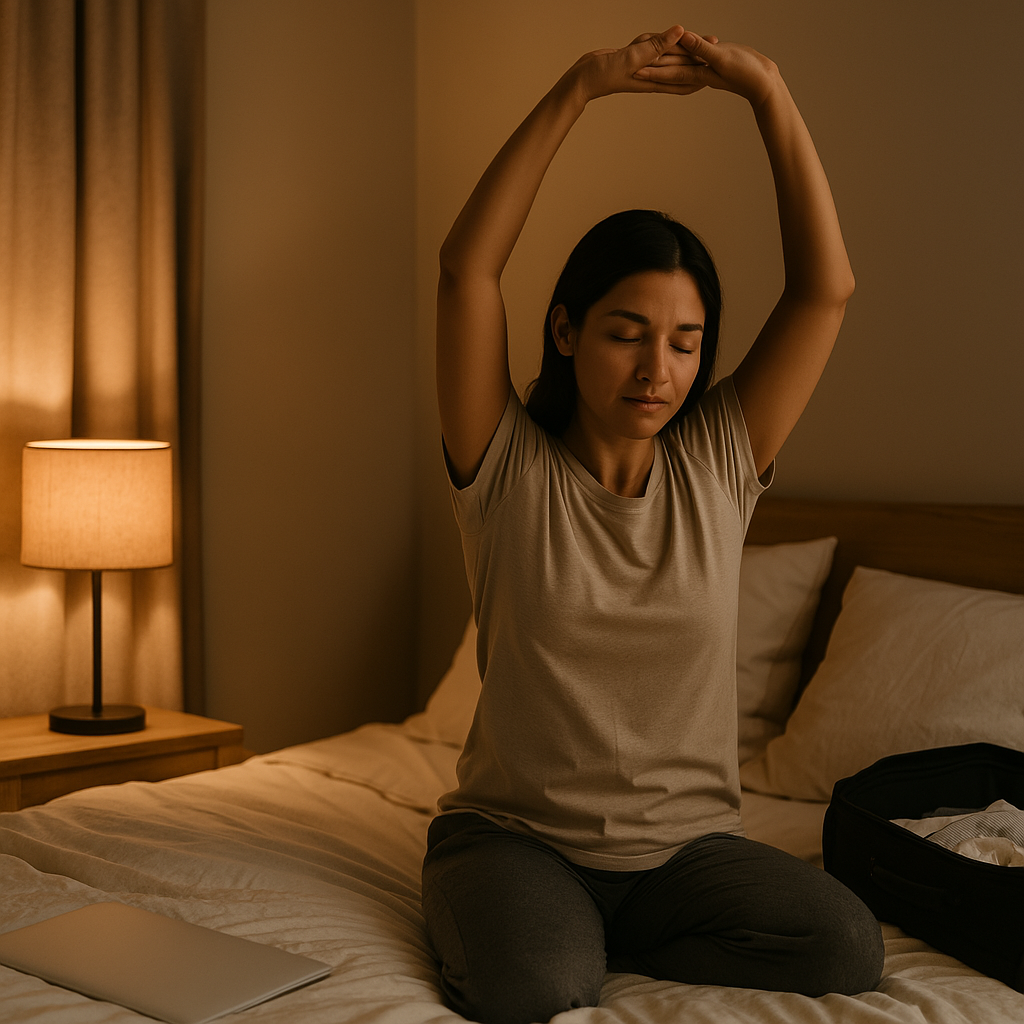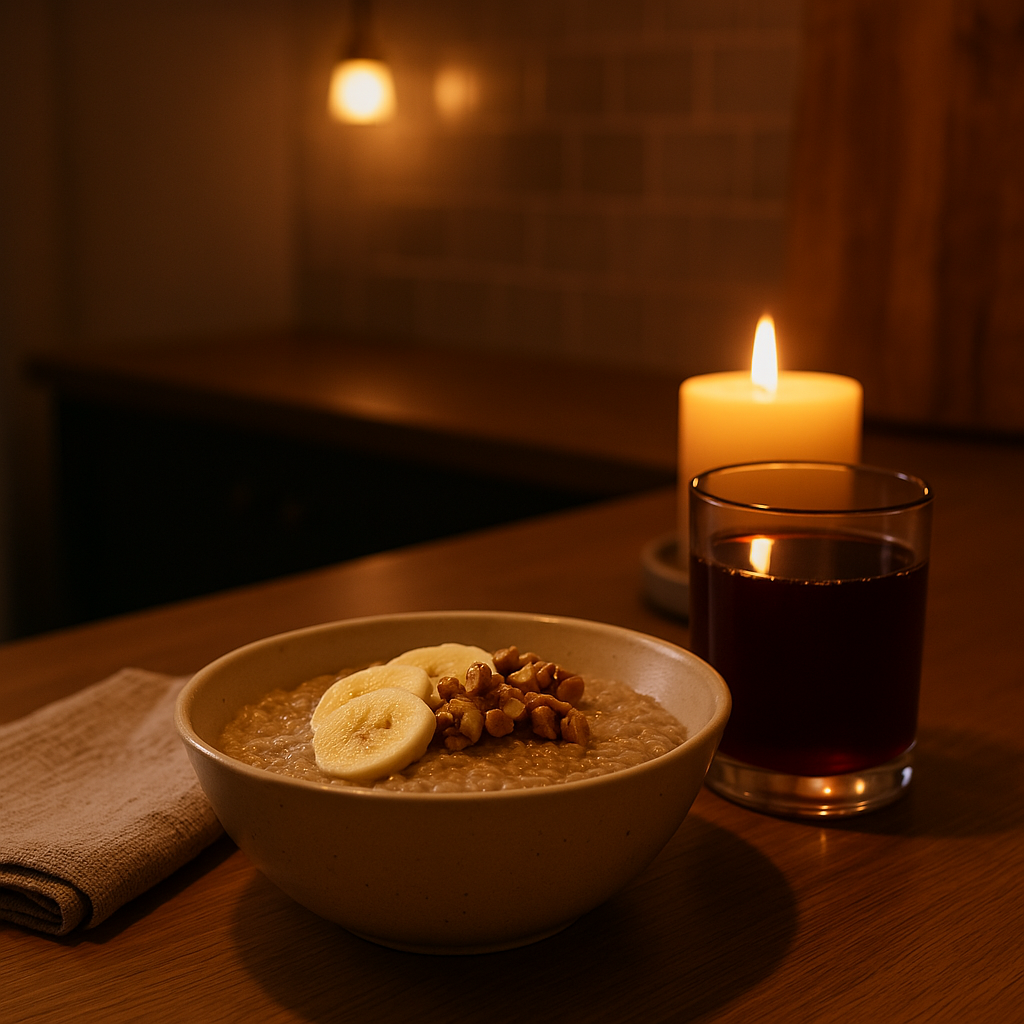You know that sleep is important — but not all sleep is equal. Ever wake up after a full night’s rest and still feel foggy, sluggish, or emotionally drained? Chances are, your body got enough sleep, but not the right balance of it.
The two most restorative stages of sleep — REM and deep sleep — serve very different purposes. One helps your body heal. The other helps your brain function. And when one is out of sync, so are you.
In this guide, we’ll break down the difference between REM and deep sleep, how each stage impacts your health, and simple ways to support both so you can wake up feeling refreshed and restored.
The 4 Stages of Sleep (Quick Overview)
Before we dive in, here’s a quick look at the typical sleep cycle:
- Stage 1 – Light Sleep: You’re drifting off. This stage lasts just a few minutes.
- Stage 2 – Deeper Light Sleep: Body temperature drops, heart rate slows. You spend most of your night here.
- Stage 3 – Deep Sleep (aka slow wave sleep): Your body repairs tissue, builds muscle, and strengthens the immune system.
- Stage 4 – REM Sleep: Brain activity spikes, dreams happen, and your mind processes emotions and memory.
You cycle through these stages multiple times each night — and the quality of your rest depends on how smoothly your body moves through them.
What Is REM Sleep?
REM stands for Rapid Eye Movement, and it’s the stage where your brain lights up with activity. You may be lying still, but your brain is doing overtime — processing memories, sorting through emotions, and even rehearsing problem-solving skills.
🧠 What happens during REM sleep?
- Your brain becomes more active
- You dream more vividly
- Emotional memories and learning are consolidated
- Breathing becomes irregular, heart rate increases slightly
REM sleep typically occurs later in the night, especially in the second half of your sleep cycle. If you’re waking frequently or cutting your sleep short, you’re likely missing out.
What Is Deep Sleep?
Also known as slow wave sleep, this stage is all about physical recovery. Deep sleep is when your body goes into maintenance mode — repairing cells, restoring energy, and fortifying your immune system.
💪 What happens during deep sleep?
- Brain waves slow down significantly
- Blood pressure drops
- Growth hormone is released
- Muscle tissue repairs
- Immune function is strengthened
Deep sleep usually occurs earlier in the night, during the first 3–4 hours after you fall asleep.
Key Differences Between REM and Deep Sleep
|
Feature
|
REM Sleep
|
Deep Sleep
|
|
Brain Activity
|
High
|
Very Low
|
|
Physical Recovery
|
Minimal
|
High
|
|
Mental Restoration
|
Emotional processing, memory, creativity
|
Basic cognitive support
|
|
Dreaming
|
Vivid dreams
|
Rare dreams
|
|
When It Occurs
|
Later sleep cycles
|
Earlier sleep cycles
|
Both are essential — but they support different aspects of your health.
Why the Balance Matters
When your REM and deep sleep are in sync, you wake up feeling physically refreshed, mentally sharp, and emotionally steady.
When one is disrupted, you might notice:
- Brain fog, forgetfulness, or mood swings (from REM deprivation)
- Body aches, fatigue, or weakened immunity (from lack of deep sleep)
- A feeling of being “off,” even after 8 hours of rest
Modern life doesn’t make it easy to maintain this balance. Late-night scrolling, alcohol, inconsistent sleep schedules, and even ambient noise can all interfere with one or both stages.
Tips to Optimise Both REM and Deep Sleep
Getting better sleep isn’t just about more hours — it’s about better quality. Here’s how to support both deep sleep and REM:
- 🕒 Stick to a consistent sleep schedule — even on weekends
- 💤 Wind down without screens at least 1 hour before bed
- 🧘♀️ Try a calming routine: herbal tea, light stretching, or reading
- 🍷 Avoid alcohol — it suppresses REM and fragments sleep cycles
- 😴 Use eye masks and earplugs to reduce light and noise disturbances
- 🏃♀️ Exercise during the day, not too close to bedtime
- 🕯️ Create a dark, quiet environment that signals safety to your brain
The more your body trusts your routine, the more naturally it will cycle through the stages that matter most.
Final Thoughts
REM and deep sleep aren’t in competition — they’re collaborators. One helps you process the day, the other helps you recover from it. And together, they create the kind of deep, balanced rest your body truly craves.
At Slumberite, we believe better sleep starts with better support — from calming tools like 3D Eye Masks and Noise-Cancelling Earplugs, to guides that help you unwind with intention. Because when you sleep right, you live better.



Leave a comment
This site is protected by hCaptcha and the hCaptcha Privacy Policy and Terms of Service apply.